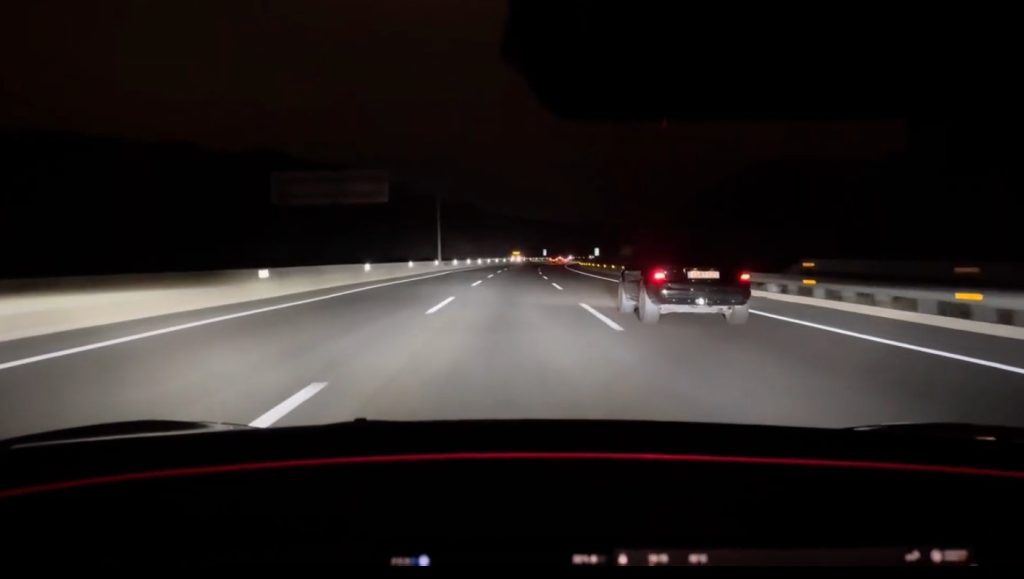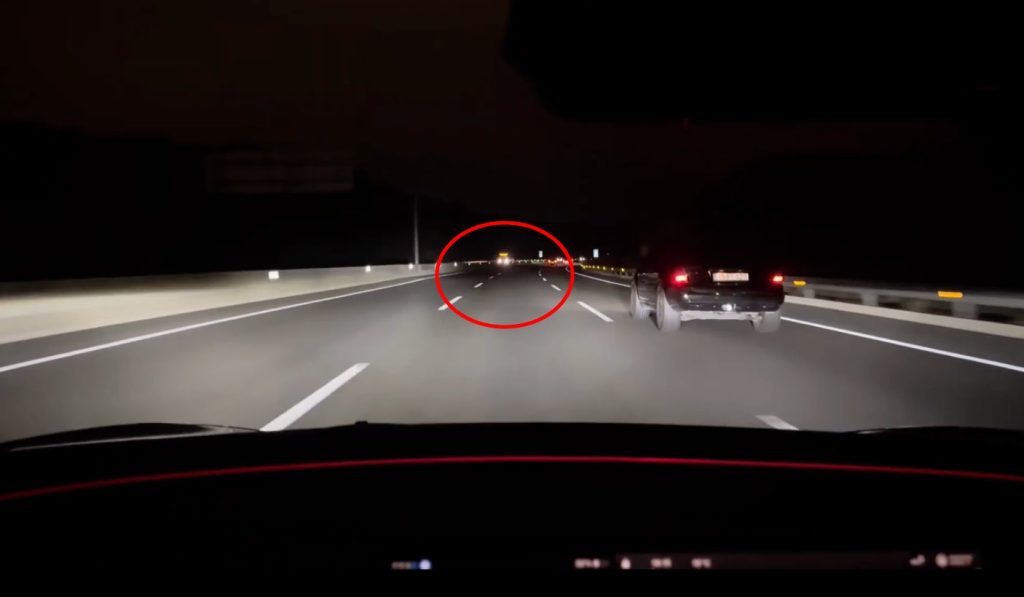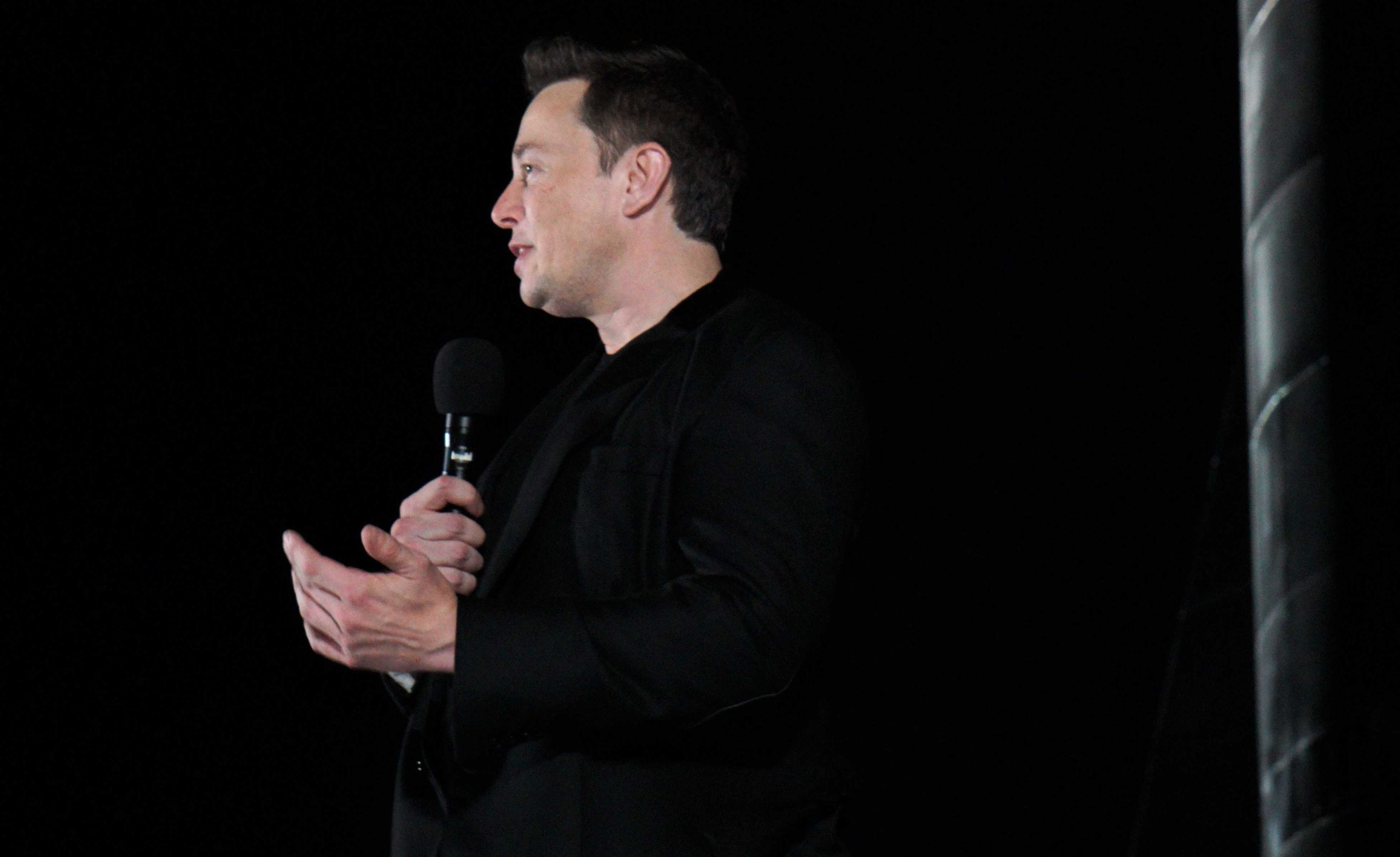
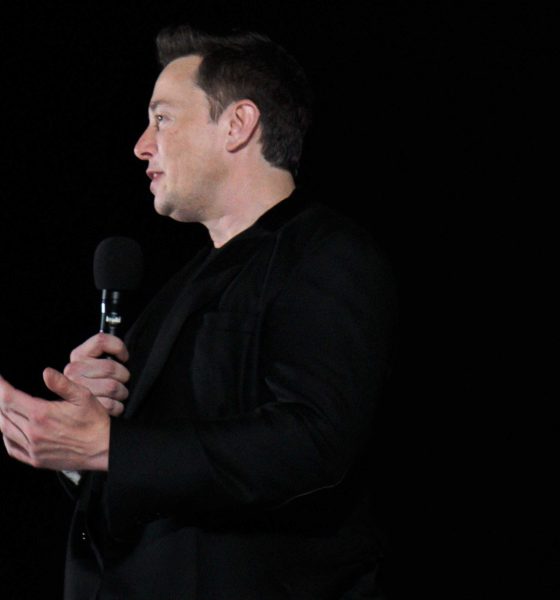
News
Tesla CEO Elon Musk’s lawyer alleges that SEC leaked info from federal investigation
It appears that the ongoing battle between the SEC and Tesla CEO Elon Musk is far from over. In a letter addressed to New York Judge Alison Nathan on Monday, Musk’s lawyer, Alex Spiro, accused the Securities and Exchange Commission of leaking information from its investigation.
These leaks, Spiro noted, seem to be reprisals against the CEO, who has openly criticized the SEC in the past. Spiro did not provide the name of the SEC staff member who allegedly leaked information in his letter, but he argued that such actions highlight the agency’s vindictive nature towards the Tesla CEO.
“Upon information and belief, after I filed the February 17, 2022 letter to this Court regarding the Commission’s conduct, at least one member of the SEC staff responded by leaking certain information regarding its investigation. This leak is emblematic of the vindictive, improper conduct that occasioned my letter: the SEC is retaliating against Mr. Musk and Tesla, without answering to the constraints of principle or law in so doing,” the letter read.
In a separate letter, Spiro also stated that certain SEC staff should “preserve their records and devices.” The lawyer further noted that he had reported the matter to the SEC Office of Inspector General. The SEC, for its part, has not issued a response to Spiro’s allegations as of writing.
“No denial has been forthcoming as of yet. So that the Court is advised of the premises and able to address the ostensible misconduct before it, we now respectfully seek on-the-record assurance that the Commission has not leaked investigative details in violation of its own rules and policies and is otherwise acting in accordance with the law,” Spiro noted.
Musk and the SEC have locked horns in the past, especially following the CEO’s “funding secured” fiasco in 2018, which resulted in a hefty fine of $40 million that would be distributed to TSLA shareholders. Earlier this month, Musk accused the SEC of supposedly neglecting its duties to remit the $40 million to TSLA investors. Spiro also argued that the SEC had been targeting both the CEO and Tesla with an unrelenting investigation aimed at limiting the executive’s free speech rights.
The SEC eventually responded to the Tesla CEO’s accusations. In a letter submitted last Friday, Steven Buchholz of the Securities and Exchange Commission’s San Francisco Office denied that the agency is taking too long to distribute Musk and Tesla’s $40 million fine to TSLA shareholders. Buchholz argued that the process involved in distributing the funds is complex, but a working plan to accomplish the task should be ready around March 2022.
Don’t hesitate to contact us with news tips. Just send a message to simon@teslarati.com to give us a heads up.

News
Ford is charging for a basic EV feature on the Mustang Mach-E
When ordering a new Ford Mustang Mach-E, you’ll now be hit with an additional fee for one basic EV feature: the frunk.
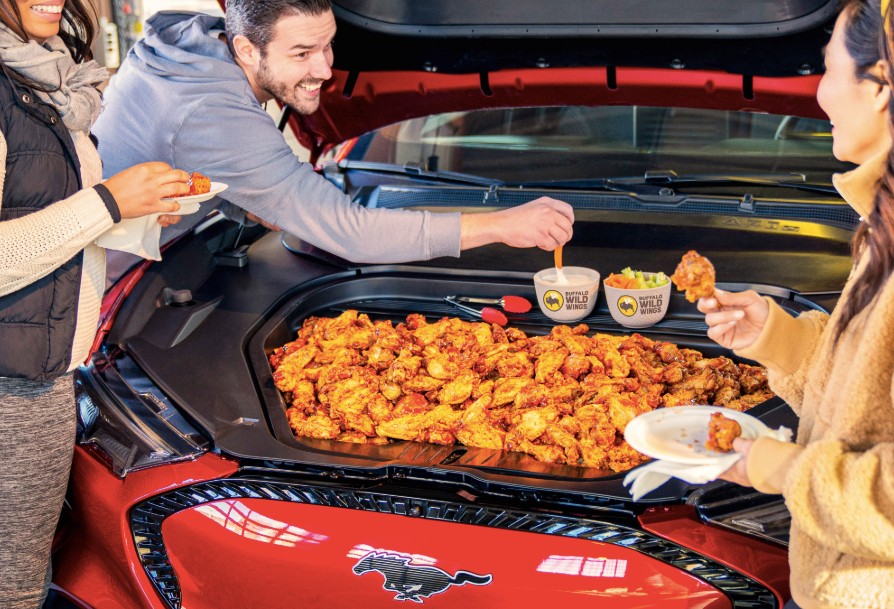
Ford is charging an additional fee for a basic EV feature on its Mustang Mach-E, its most popular electric vehicle offering.
Ford has shuttered its initial Model e program, but is venturing into a more controlled and refined effort, and it is abandoning the F-150 Lightning in favor of a new pickup that is currently under design, but appears to have some favorable features.
However, ordering a new Mustang Mach-E now comes with an additional fee for one basic EV feature: the frunk.
The frunk is the front trunk, and due to the lack of a large engine in the front of an electric vehicle, OEMs are able to offer additional storage space under the hood. There’s one problem, though, and that is that companies appear to be recognizing that they can remove it for free while offering the function for a fee.
Ford is now charging $495 on the Mustang Mach-E frunk (front trunk). What are your thoughts on that? pic.twitter.com/EOzZe3z9ZQ
— Alan of TesCalendar 📆⚡️ (@TesCalendar1) February 24, 2026
Ford is charging $495 for the frunk.
Interestingly, the frunk size varies by vehicle, but the Mustang Mach-E features a 4.7 to 4.8 cubic-foot-sized frunk, which measures approximately 9 inches deep, 26 inches wide, and 14 inches high.
When the vehicle was first released, Ford marketed the frunk as the ultimate tailgating feature, showing it off as a perfect place to store and serve cold shrimp cocktail.
Ford Mach-E frunk is perfect for chowders and chicken wings, and we’re not even joking
It appears the decision to charge for what is a simple advantage of an EV is not going over well, as even Ford loyal customers say the frunk is a “basic expectation” of an EV. Without it, it seems as if fans feel the company is nickel-and-diming its customers.
It will be pretty interesting to see the Mach-E without a frunk, and while it should not be enough to turn people away from potentially buying the vehicle, it seems the decision to add an additional charge to include one will definitely annoy some customers.
News
Tesla to improve one of its best features, coding shows
According to the update, Tesla will work on improving the headlights when coming into contact with highly reflective objects, including road signs, traffic signs, and street lights. Additionally, pixel-level dimming will happen in two stages, whereas it currently performs with just one, meaning on or off.
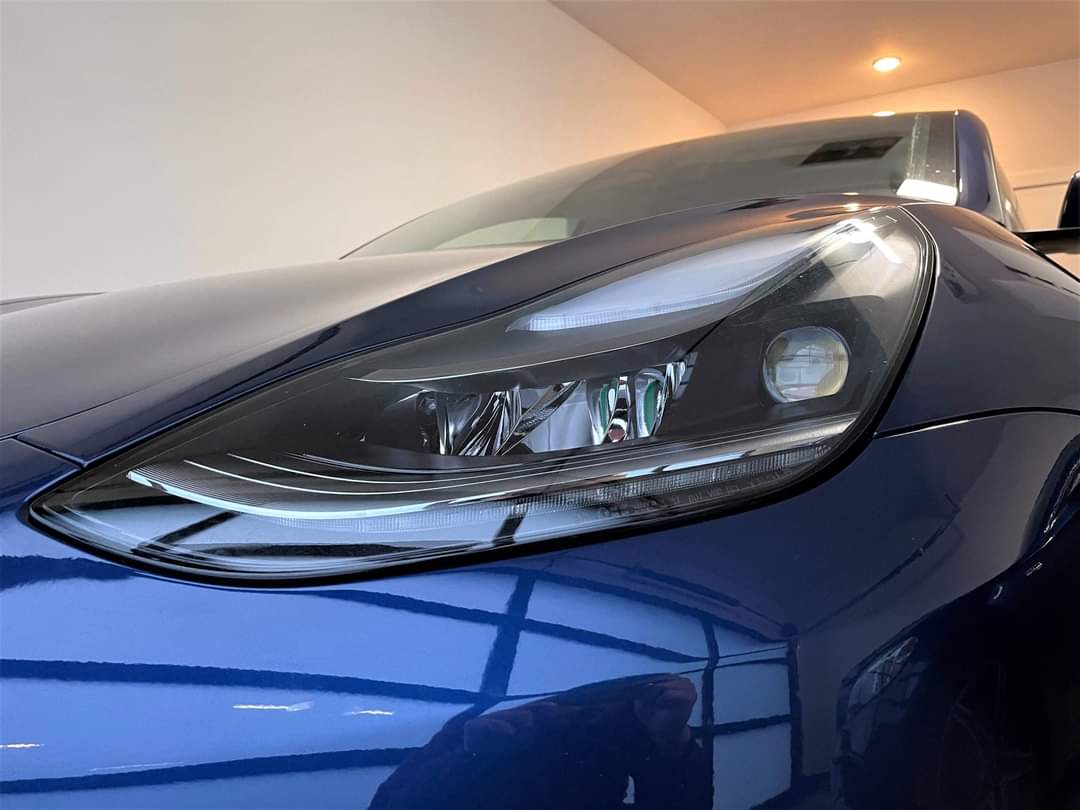
Tesla is looking to upgrade its Matrix Headlights, a unique and high-tech feature that is available on several of its vehicles. The headlights aim to maximize visibility for Tesla drivers while being considerate of oncoming traffic.
The Matrix Headlights Tesla offers utilize dimming of individual light pixels to ensure that visibility stays high for those behind the wheel, while also being considerate of other cars by decreasing the brightness in areas where other cars are traveling.
Here’s what they look like in action:
- Credit: u/ObjectiveScratch | Reddit
- Credit: u/ObjectiveScratch | Reddit
As you can see, the Matrix headlight system intentionally dims the area where oncoming cars would be impacted by high beams. This keeps visibility at a maximum for everyone on the road, including those who could be hit with bright lights in their eyes.
There are still a handful of complaints from owners, however, but Tesla appears to be looking to resolve these with the coming updates in a Software Version that is currently labeled 2026.2.xxx. The coding was spotted by X user BERKANT:
🚨 Tesla is quietly upgrading Matrix headlights.
Software https://t.co/pXEklQiXSq reveals a hidden feature:
matrix_two_stage_reflection_dip
This is a major step beyond current adaptive high beams.
What it means:
• The car detects highly reflective objects
Road signs,… pic.twitter.com/m5UpQJFA2n— BERKANT (@Tesla_NL_TR) February 24, 2026
According to the update, Tesla will work on improving the headlights when coming into contact with highly reflective objects, including road signs, traffic signs, and street lights. Additionally, pixel-level dimming will happen in two stages, whereas it currently performs with just one, meaning on or off.
Finally, the new system will prevent the high beams from glaring back at the driver. The system is made to dim when it recognizes oncoming cars, but not necessarily objects that could produce glaring issues back at the driver.
Tesla’s revolutionary Matrix headlights are coming to the U.S.
This upgrade is software-focused, so there will not need to be any physical changes or upgrades made to Tesla vehicles that utilize the Matrix headlights currently.
Elon Musk
xAI’s Grok approved for Pentagon classified systems: report
Under the agreement, Grok can be deployed in systems handling classified intelligence analysis, weapons development, and battlefield operations.

Elon Musk’s xAI has signed an agreement with the United States Department of Defense (DoD) to allow Grok to be used in classified military systems.
Previously, Anthropic’s Claude had been the only AI system approved for the most sensitive military work, but a dispute over usage safeguards has reportedly prompted the Pentagon to broaden its options, as noted in a report from Axios.
Under the agreement, Grok can be deployed in systems handling classified intelligence analysis, weapons development, and battlefield operations.
The publication reported that xAI agreed to the Pentagon’s requirement that its technology be usable for “all lawful purposes,” a standard Anthropic has reportedly resisted due to alleged ethical restrictions tied to mass surveillance and autonomous weapons use.
Defense Secretary Pete Hegseth is scheduled to meet with Anthropic CEO Dario Amodei in what sources expect to be a tense meeting, with the publication hinting that the Pentagon could designate Anthropic a “supply chain risk” if the company does not lift its safeguards.
Axios stated that replacing Claude fully might be technically challenging even if xAI or other alternative AI systems take its place. That being said, other AI systems are already in use by the DoD.
Grok already operates in the Pentagon’s unclassified systems alongside Google’s Gemini and OpenAI’s ChatGPT. Google is reportedly close to an agreement that will result in Gemini being used for classified use, while OpenAI’s progress toward classified deployment is described as slower but still feasible.
The publication noted that the Pentagon continues talks with several AI companies as it prepares for potential changes in classified AI sourcing.
